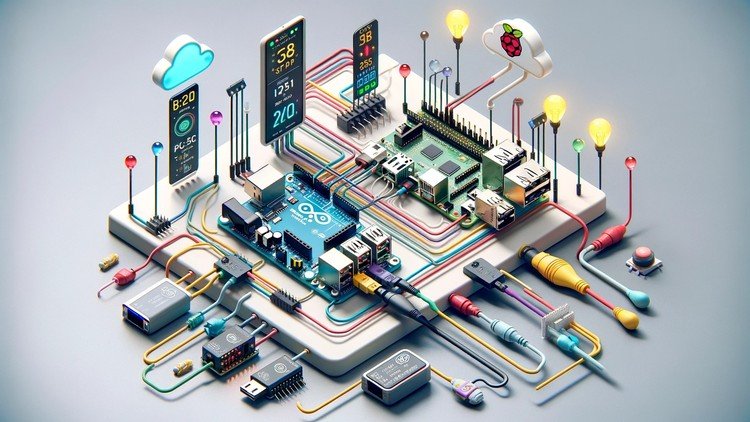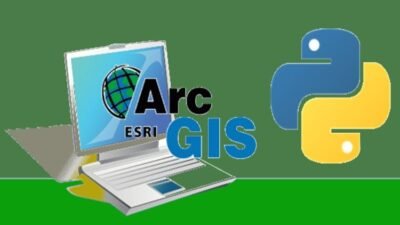If you’re eager to dive into the world of microcontroller communication, the course "I2C Communication between Arduino and Raspberry Pi" on Udemy is a fantastic stepping stone. Whether you’re a hobbyist or a budding engineer, this course provides a comprehensive framework to understand and implement I2C communication between two of the most popular platforms in the maker community: Arduino and Raspberry Pi.
What you’ll learn
Throughout the course, students can expect to acquire several key skills and knowledge pertaining to I2C communication. Here are the highlights:
-
Understanding I2C Protocol: A thorough introduction to the I2C (Inter-Integrated Circuit) protocol, including its architecture, communication modes, and the benefits it offers for interfacing multiple devices.
-
Arduino Basics: If you’re new to Arduino, the course covers essential concepts and programming techniques to help you set up your first project.
-
Raspberry Pi Setup: Learn how to configure the Raspberry Pi to communicate via I2C and how it can function as either a master or slave device.
-
Hands-On Projects: Engaging projects will give you practical experience, including setting up a simple master-slave communication system and sending data between the two platforms.
- Troubleshooting Techniques: Gain insights into common issues and how to resolve them, ensuring you’re well-equipped when things don’t go as planned.
By the end of the course, you will not only understand the theoretical aspects of I2C communication but also be able to implement it effectively between an Arduino and a Raspberry Pi.
Requirements and course approach
This course is designed with beginners and intermediate learners in mind, but having some prior knowledge of basic programming and electronics will certainly be beneficial. The key requirements include:
-
Basic understanding of electronics: Familiarity with concepts like voltage and current will make the content more accessible.
- Some programming experience: While no specific programming language is required, basic knowledge of Python (for Raspberry Pi) and Arduino programming is helpful.
In terms of teaching approach, this course utilizes a mix of lectures, hands-on projects, and practical demonstrations. Video tutorials walk students through each phase, with clear explanations and ample examples to ensure concepts are understood. The course is structured so that learners can progress at their own pace, supporting both retention and practical application.
Who this course is for
This course is ideal for:
-
Beginners: If you’re just starting with Arduino or Raspberry Pi, this course helps demystify the communication process between the two platforms and lays a solid foundation for future projects.
-
Hobbyists: Makers looking to expand their skill set will find the projects engaging and rewarding, making it a great addition to your DIY toolkit.
-
Students: Those studying electronics or computer engineering will benefit from the practical applications and thorough explanations provided throughout the course.
- Intermediate Users: If you’re someone with some experience looking to refine your knowledge and tackle more complex projects, the troubleshooting section and added insights will prove invaluable.
Outcomes and final thoughts
By completing the course "I2C Communication between Arduino and Raspberry Pi," learners will come away with not just a better understanding of I2C communication but also the confidence to tackle their projects. You’ll be equipped to integrate multiple devices, expand your knowledge on microcontroller communication, and troubleshoot common problems.
Overall, the course is highly recommended for anyone looking to enrich their Arduino and Raspberry Pi projects. The engaging instructional style, practical applications, and hands-on projects make it a worthy investment in your maker journey. Whether you’re intrigued by robotics, IoT applications, or simply enhancing your electronics skills, this course offers valuable insights and experience that are sure to pay off in your development as a maker.




